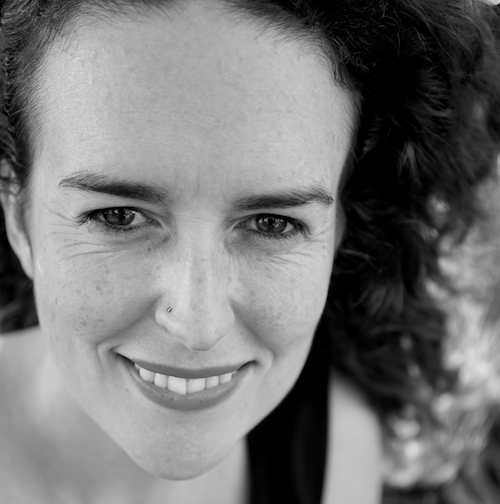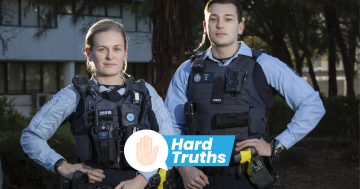
Jess Hill’s book about the fundamental causes of domestic and family violence is set for US release. Photo: Supplied.
When journalist and author Jess Hill, who is speaking in Canberra tonight, started writing See What You Made Me Do: Power, Control and Domestic Abuse, she was faced with two options for her book (now being reprinted, and set for US and Canadian release next year).
“I could spend my time looking at what happens to victims and why they make certain choices,” says Hill, who is a multi-award winning Walkley recipient and investigative journalist. “That would have taken me comfortably to my first six-month deadline.
“But the big unanswered question was, why do the perpetrators do it? And that’s why the book ended up taking three years to write.”
The result is a comprehensive deep dive into why and how domestic and family violence occurs. Hill says that when she first started reporting the subject, victims would often tell her they were traumatised by the general lack of understanding about what had happened to them and continued to affect their lives.
“I thought that was unacceptable in a country with quite high domestic violence rates, more than 40 years since the first shelters opened,” Hill says. “I wanted to write a book that was not just for survivors but the general public too.”
She found a lot of neat, pre-formed answers to the violence questions floating around and decided to look at them more deeply.
“For example, we often hear that men use violence as a form of power and control. I wanted to know why normal men sometimes exhibited almost psychotic behaviour inside their relationships and with their children.
“These men were not monsters but had behaved monstrously. Why was that?”
Her research suggested there are multiple social and emotional issues that contribute to family and domestic violence, many of them grounded in rapidly changing roles and expectations around relationships.
In her view, struggles with intimacy are often the trigger. She cites a socialized lifetime of training for many men that still focuses on being “independent, autonomous and unemotional” as the definition of masculinity.
“Then they come into relationships where so much more is required of them and they struggle with that. They expect relationships to happen automatically, not to require work on their part. In some of them, it will bring out the worst, especially for anyone with an overwhelming sense of entitlement that’s really threatened by emotional demands from their partner.”
Hill believes this is at the heart of the problem when both partners are now often on equal terms socially, emotionally and financially and either one can be the breadwinner. That means there’s no longer an automatic power imbalance in the relationship.
Her research backs the finding that many spontaneous violence perpetrators are not especially misogynistic by contrast with the rest of the population, but instead have “profound issues with intimacy and communications, and an inability to regulate themselves”.
It’s a different story with coercive behaviour patterns, Hill says. “You get people who set out by design or instinct to control their partners, to set up a patriarchy in miniature in their homes and communities. That quite often does fit the traditional definition of misogyny.
“These are people who see everything in terms of winning and losing, not gender equality.”
Hill says that to date she hasn’t been attacked by men’s rights groups, but has had a significant degree of support from people who say her book has fundamentally re-framed their thoughts.
“They’ve had new conversations with their fathers, their partners. There’s something in the language of intimacy, shame and male insecurity that is really resonating.
“The book acknowledges people’s inner worlds and says that men are more than the invisible foot soldiers of patriarchy. We feel loyalty to the victim experience, but perhaps the greatest loyalty we can show is trying to understand why the perpetrators did it.”
Politics in the Pub with Jess Hill is at Union Bar, 3 Rimmer St, Acton ANU on Wednesday 28 August at 6 pm. It’s a free event, but bookings are essential.















